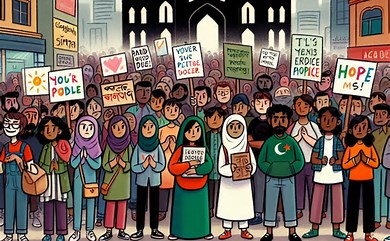Thousands of demonstrators took to the streets across France on Saturday, protesting President Emmanuel Macron’s appointment of conservative politician Michel Barnier as the new prime minister. The protests were driven by anger from far-left groups, particularly the France Unbowed party, who see the appointment as a rejection of the electorate’s will.
Far-Left Opposition
The protests follow a deeply divisive legislative election in July, which resulted in a hung parliament. President Macron bypassed appointing a far-left prime minister, choosing Barnier instead. This decision was seen by the far-left, especially France Unbowed leader Jean-Luc Melenchon, as a “power grab” that ignores the desires of French voters. Melenchon’s fiery speeches have further fueled the protests.
Protests Across the Country
In Paris, protesters gathered at Place de la Bastille, some carrying placards with messages like “Where is my vote?” Tensions ran high as police prepared for possible confrontations. Melenchon addressed the crowd, stating, “The French people are in rebellion. This is a long-term battle.”
Demonstrations took place in over 150 locations, with speakers across France voicing concerns that the government has ignored the people’s will.
Barnier’s Response
While the protests were happening, Barnier was conducting his first official visit to Necker Hospital, where he met with healthcare workers. He has pledged to address public concerns and focus on improving France’s public services. However, the unrest is expected to play a significant role in shaping his government.
Divided Political Landscape
Barnier, at 73, is the oldest prime minister in France’s Fifth Republic, replacing Gabriel Attal, who was forced to resign after Macron’s centrist government failed in the July elections. The election resulted in a fragmented National Assembly, with no party holding a clear majority.
Attal, the youngest and first openly gay prime minister, faced criticism due to his government’s poor performance. Barnier’s past conservative stances, including voting against the 1981 law decriminalizing homosexuality, have also come under scrutiny.
Challenges Ahead
With the political spectrum deeply divided between far-left, far-right, and centrist blocs, Barnier’s task is formidable. His long political experience, including as the EU’s Brexit negotiator, is seen as a potential asset. However, the challenge of uniting a fractured parliament and stabilizing Macron’s weakened government remains significant.







